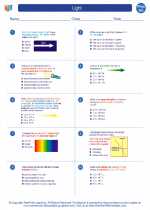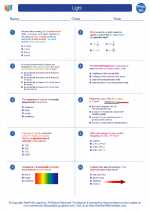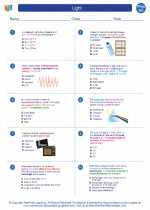Single Replacement Reactions
In chemistry, single replacement reactions are a type of chemical reaction where one element replaces another element in a compound. These reactions occur when a more reactive element displaces a less reactive element from a compound. The general chemical equation for a single replacement reaction is:
A + BC → AC + B
Where A is the element that replaces B in the compound BC, and AC is the new compound formed.
Key Concepts
1. Activity Series: The activity series is a list of elements arranged in order of their reactivity. It helps determine whether a single replacement reaction will occur. A more reactive element can displace a less reactive element from a compound, but not vice versa.
2. Reactants and Products: In a single replacement reaction, the reactants are the element and the compound, while the products are the new compound and the displaced element.
3. Oxidation-Reduction: Single replacement reactions involve the transfer of electrons from one element to another. The element being replaced is oxidized, and the replacing element is reduced.
Example
Consider the single replacement reaction:
Zn + 2HCl → ZnCl2 + H2
In this reaction, zinc (Zn) replaces hydrogen (H) in hydrochloric acid (HCl) to form zinc chloride (ZnCl2) and hydrogen gas (H2).
Study Guide
When studying single replacement reactions, it's important to focus on the following:
1. Activity Series: Memorize the activity series of elements and understand how to use it to predict single replacement reactions.
2. Balancing Equations: Practice balancing chemical equations for single replacement reactions to ensure conservation of mass and charge.
3. Identifying Reactants and Products: Understand how to identify the reactants and products in a single replacement reaction, and how to write the balanced chemical equation.
4. Redox Reactions: Learn about oxidation and reduction processes involved in single replacement reactions, and how to identify the oxidized and reduced elements.
5. Applications: Explore real-life examples and applications of single replacement reactions in industry and everyday life.
By mastering these concepts, you'll be well-prepared to understand and solve problems related to single replacement reactions in chemistry.



